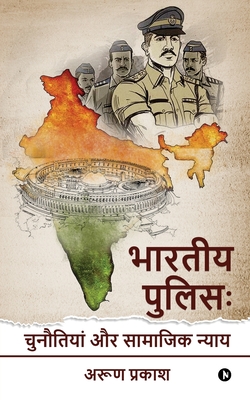Indian Police: Challenges and Social Justice

Indian Police: Challenges and Social Justice
The British government created a police act in 1861. After independence, the Indian government did not care to change this act for decades. The police act of 1861 was a tool and hidden agenda of Britishers for suppressing the slave Indians. It was a tactful instrument to rule Indians with the help of Indians. Later, after independence, the politicians got a taste of misusing their powers to interfere in the police administration. They also tried to provide shelter to the criminals due to their vested interests.
For example, a huge illegal construction took place in Delhi without a check from any authority. The increase in crime rate in our country from 2005 to 2015 was recorded to be nearly 4 per cent per year. Lots of court cases got piled up in the courts. The present pendency of cases is as large as above 30 million. The disposal of these court cases alone may take 50 to 100 years to decide.
From 1979 to 1981, the police commission reports suggested many reforms, but no one bothered to act on them. The Supreme Court issued directives in 2006, but again the states did not follow these directives. There are contempts of the court pending in the Supreme Court against many states regarding this issue. The Model Police Act was proposed by a committee under the Supreme Court, but even that was not followed.
Under the present system of police, a single politician can act like a dictator to dominate the police officers. The system is unable to ensure justice for the weak and poor people. Vested interests continue to dominate the police and criminal justice system. We have nearly 11 times more murder rate per lakh population in India as compared to Japan.
PRP: 92.91 Lei
Acesta este Pretul Recomandat de Producator. Pretul de vanzare al produsului este afisat mai jos.
83.62Lei
83.62Lei
92.91 LeiIndisponibil
Descrierea produsului
The British government created a police act in 1861. After independence, the Indian government did not care to change this act for decades. The police act of 1861 was a tool and hidden agenda of Britishers for suppressing the slave Indians. It was a tactful instrument to rule Indians with the help of Indians. Later, after independence, the politicians got a taste of misusing their powers to interfere in the police administration. They also tried to provide shelter to the criminals due to their vested interests.
For example, a huge illegal construction took place in Delhi without a check from any authority. The increase in crime rate in our country from 2005 to 2015 was recorded to be nearly 4 per cent per year. Lots of court cases got piled up in the courts. The present pendency of cases is as large as above 30 million. The disposal of these court cases alone may take 50 to 100 years to decide.
From 1979 to 1981, the police commission reports suggested many reforms, but no one bothered to act on them. The Supreme Court issued directives in 2006, but again the states did not follow these directives. There are contempts of the court pending in the Supreme Court against many states regarding this issue. The Model Police Act was proposed by a committee under the Supreme Court, but even that was not followed.
Under the present system of police, a single politician can act like a dictator to dominate the police officers. The system is unable to ensure justice for the weak and poor people. Vested interests continue to dominate the police and criminal justice system. We have nearly 11 times more murder rate per lakh population in India as compared to Japan.
Detaliile produsului











